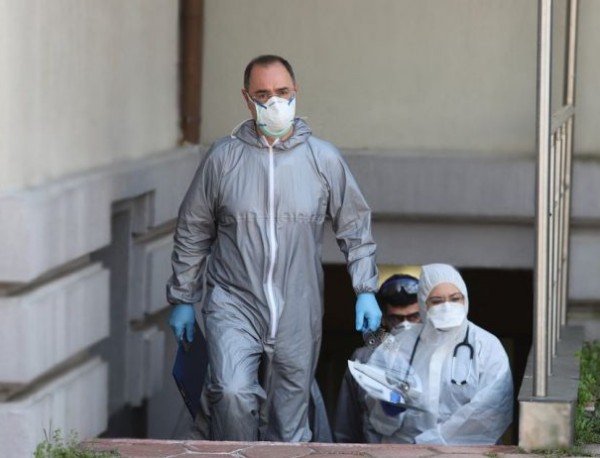
[ad_1]

© |
Doctors from the Military Medical Academy discovered a new symptom that predicts a severe course of COVID-19, who presented the first Bulgarian specialized study of hospitalized patients with coronavirus. Thus, to the dangerous lack of air, they added nausea as a marker of serious complications. Other alarming signs of problems are the significant deviations in laboratory indicators of CRP, LDH, ferritin, fibrinogen, creatinine and the low percentage of lymphocytes, clarifies skener.news.
The MMA infectious disease study included only hospital patients who were confirmed to be infected with PCR testing. There were 138 patients, divided into severe and moderate cases, the majority men (63%). Their average age is 52.9 years. The case analysis covers the period from March 2020 to June 2020, and the study is uploaded based on one of the largest specialized science and medicine platforms PubMed.
According to the data, the main clinical signs of admission are fatigue, cough and fever, since 79% of those hospitalized in the Military Medical Academy had a temperature above 37.5 degrees (the majority, more than 38 degrees). Another common symptom is headache, while conjunctivitis is much less common, but 10 out of 12 patients with this symptom were in serious condition. One in two infected people who complained of shortness of breath suffered from a very serious illness.
The specialists managed to highlight the profile of the Bulgarian patient who is seriously ill with COVID-19. This is an older man with increased arterial hypertension, cardiovascular, malignant or chronic kidney disease, with signs of dyspnea and nausea.
Of the 138 patients in the study, 121 were discharged after their condition improved. At the end of the study, 11 patients were still being treated at the Military Medical Academy and 6 had died, all with comorbidities, such as high blood pressure, heart problems, cancer, diabetes or COPD. Nine patients had to be transferred to intensive care and eight of them intubated. Of those who received mechanical ventilation, one was extubated and sent for home treatment after 49 days of intubation.
“No significant data on antiviral treatment was found in the present study. However, the key to a good outcome is the individual patient approach and conservative ventilation approach with a lung protection strategy,” said the physicians of MMA, who used all available therapies. approved in global and domestic protocols for the treatment of COVID-19.
For example, 32 of the 138 patients enrolled in the study took hydroxychloroquine, but some of them developed arrhythmias, 24 received Aviron, Lopinavir / Ritonavir drank only four, 28 received “Rimantidine” and 5 – “Tamiflu”, which are medicines for influenza. In addition, 90% of the patients took intravenous antibiotics and half, glucocorticosteroids and anticoagulants. In 24, antifungal medication was added.
[ad_2]